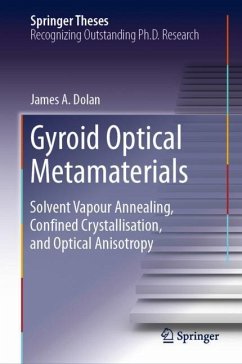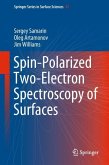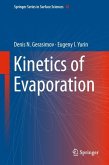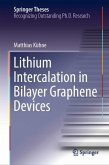This thesis explores the fabrication of gyroid-forming block copolymer templates and the optical properties of the resulting gyroid optical metamaterials, significantly contributing to our understanding of both. It demonstrates solvent vapour annealing to improve the long-range order of the templates, and investigates the unique crystallisation behaviour of their semicrystalline block. Furthermore, it shows that gyroid optical metamaterials that exhibit only short-range order are optically equivalent to nanoporous gold, and that the anomalous linear dichroism of gyroid optical metamaterials with long-range order is the result of the surface termination of the bulk gyroid morphology.
Optical metamaterials are artificially engineered materials that, by virtue of their structure rather than their chemistry, may exhibit various optical properties not otherwise encountered in nature (e.g. a negative refractive index). However, these structures must be significantly smaller than the wavelength of visible light and are therefore challenging to fabricate using traditional "top down" techniques. Instead, a "bottom up" approach can be used, whereby optical metamaterials are fabricated via templates created by the self-assembly of block-copolymers. One such morphology is the gyroid, a chiral, continuous and triply periodic cubic network found in a range of natural and synthetic self-assembled systems.
Optical metamaterials are artificially engineered materials that, by virtue of their structure rather than their chemistry, may exhibit various optical properties not otherwise encountered in nature (e.g. a negative refractive index). However, these structures must be significantly smaller than the wavelength of visible light and are therefore challenging to fabricate using traditional "top down" techniques. Instead, a "bottom up" approach can be used, whereby optical metamaterials are fabricated via templates created by the self-assembly of block-copolymers. One such morphology is the gyroid, a chiral, continuous and triply periodic cubic network found in a range of natural and synthetic self-assembled systems.








